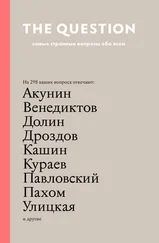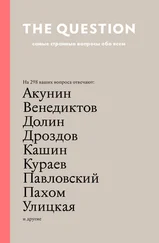PYATNITSKI: “The Comintern is not a party but a world organization of national Communist parties. It toils for world Communism, for the incorporation of the whole world into a single Communist society.”
KUUSINEN: “That is, it seeks to do away with private ownership of the means of production, with class exploitation and oppression, with racial tyranny, and to unite nations in accordance with a single master plan.”
KLOPSTOCK: “In form and theory, the Comintern is the brains directing activities of the sections as they endeavor to achieve a goal for this stage in the development of world Communism.”
ALL: “Welcome!”
In the thirties the Lux Hotel became a virtual detention camp, for foreign comrades were more liable to become foreign spies. The hotel tenants’ revolutionary activities were palsied, as they were perennially waiting for the NKVD footsteps to stop before their doors. A car stopping noisily in the middle of the night, in front of the hotel, would have a suicide or two as a consequence. No tenant would let the cleaning personnel into his or her apartment, and after a while cleaning was abandoned altogether. Hence already uncontrollable roaches multiplied exponentially. By 1941, none of the residents from the thirties were left in the hotel, apart from now gigantic cockroaches and a comrade from Yugoslavia, mad and dying, preserved only due to a careless bureaucratic error.
16Beside German Imperialism (1927), a study of the political will that led to the slaughter of WWI, and The Accumulation of Capital and Rosa Luxemburg (1922), a study of the life and theories of the great German revolutionary, Sorge’s most important work was Marxism and Love (1921), a work about human relationships in the context of merciless exploitation. In the Introduction, Sorge writes: “Thus love is not possible in a class society, for every human relationship is a relationship of property, exploitation, and ideological subjugation. Love as a concept can be achieved only in a classless society, where a man is a man and a woman is a woman. Just as the decisive intensification of class struggle, exposing the cruelty of capitalism, leads towards the revolution, the intensification of purely sexual relations would expose the inhumanity of individual human relations. The consequent objectified vacuum of inhumanity would simply require a revolutionary action. Love, to sum up, is not what we need now — what we need now is sex!” Scholars claim that Marxism and Love is more a product of the unfulfilled desire for Christiane, the wife of Kurt Gerlach, his teacher at the Kiel University, than a product of studious research. Some, however, tried to show that Marxism and Love (and some articles like “Anal Sex and Revolution” from 1923) influenced Wilhelm Reich. Sorge himself was not too proud of his early theoretical work: “I am convinced that my handling of these difficult theoretical questions was cumbersome and immature, and I hope that the Nazis burned every last copy.”
17Sorge’s house was what the Japanese in those days called a bunka jutaku , or “an up-to-date residence,” which was, by contemporary European and American standards, rather small. Alphonse Kauders, who visited Sorge in 1939, described it as “scarcely more than a two-story doghouse in a small garden.” In the upstairs room that Sorge used as his study, the untidiness that surrounded him amused his friends (Kauders: “It was like a Verdun of things”) and horrified his housemaid (“German pig!”), for there was a seeming chaos of books, maps, magazines, and papers. Kauders recalls that many of the books were on economics (notably on the geisha wage system), that there were American movie magazines (obtained from Gimon), and that there was “some quite interesting Asian pornography.” There were one or two fine Japanese prints and some expensive pieces of bronze and china. There were photographs of Japanese creek dams and a photograph of Greta Garbo on the thin walls. The room also contained a gramophone, and a pet owl (fed with local mice and cockroaches) in a cage. Sorge respected Japanese customs by removing his shoes at the front door and by wearing velvet slippers on the stairs and in the tiny corridor. He slept in Japanese fashion, on a mattress laid on the tatami , with his head on a small round, hard pillow. Kauders, describing Sorge’s bathroom, remembers that the fanatically clean Sorge “scrubbed himself daily, as if there was no tomorrow, and then, drawing up his knees, climbed into the wooden tub, filled with scorchingly hot water.”
18Sorge’s grandfather, Adolph Sorge, had served as the secretary for the First International during Marx’s lifetime. Grandpa Adolph told Sorge, throughout his childhood, Marx stories: about Marx reading Shakespeare (in English) and the Greek tragedies (in Greek) every July; about Marx and Engels playing tennis (Marx always losing), as the officials of the First International watched them, moving their heads “left-right, left-right, like a clock pendulum”; about Grandpa Adolph, stopping by Marx’s home and taking him to a bogus meeting, covering Marx’s secret trysts with his (recently fired) housemaid; about Marx’s pathological fear of dentists — Engels or Grandpa having to go with him and hold his hand as the blood soaked his immortal beard; about holding, piously, the manuscript of The Communist Manifesto , knowing that it was something that was to change the world forever, “the world that philosophers theretofore only attempted to interpret.”

19During his stay in Shanghai, Sorge was a frequent visitor of the infamous opium houses. In 1932, in the middle of the siege of Shanghai, in Gong Li’s opium bar, Sorge had a sensation of the physically split personality: Sorge stepped out of his own body and left it to wallow in its opiatic stupor, while he walked among the defenders, with a German nostalgia for trenches, handing out grenades to poorly clad and armed Chinese, not fearing Japanese bullets, hallucinating about “the eye of the ubiquitous sniper, the infinite preciseness of the supreme sharpshooter.”
20Sorge was admitted to the Tokyo branch of the Nazi Party in October 1934. In his speech, preceding an orgiastic drinking contest, Colonel Ott said: “One cannot but feel that our cause will be only strengthened by the energy of Dr. Richard Sorge, our beloved fellow German. There’s no better occasion to use, once again, our Führer’s timeless words: ‘We have hundred of thousands of the most intelligent sons of peasants and workers. We will have them educated and are already doing so, and we wish them someday to occupy the leading positions of state and society, along the rest of our educated strata, and not the members of the alien people. We are determined to thwart and thrust aside this alien people that knew how to insinuate itself and seize all the leading positions for itself, for we want our own people for that position.’ I deeply believe that Dr. Richard Sorge’s blood will only enhance the purity of German blood. Welcome, Richard, welcome!”
21The Thought Police inspectors, with the typical bureaucratic thoroughness, made an inventory of the items seized at Sorge’s house upon the arrest. Those bare objects — the physical tools of espionage — were to form the first grim and material skeleton in the body of proof to be forged against him. They included three cameras; one copying camera with accessories; three photo lenses (one telescopic); developing equipment; two rolls of film with photographed documents (the nature of the documents is unknown from the police files); one black leather wallet containing $1,782; sixteen notebooks with details of contacts with agents and notes in an unknown language; Sorge’s Nazi Party card (with membership fees paid until 1951) and a list of Party members in Japan; two volumes of the Complete Shakespeare (no data as to what edition); seven pages of reports and charts in English; and, lastly and fatally, two pages of a typewritten draft, also in English, of the final message of achievement, compiled to be sent to “Wittenberg” on October 15.
Читать дальше













